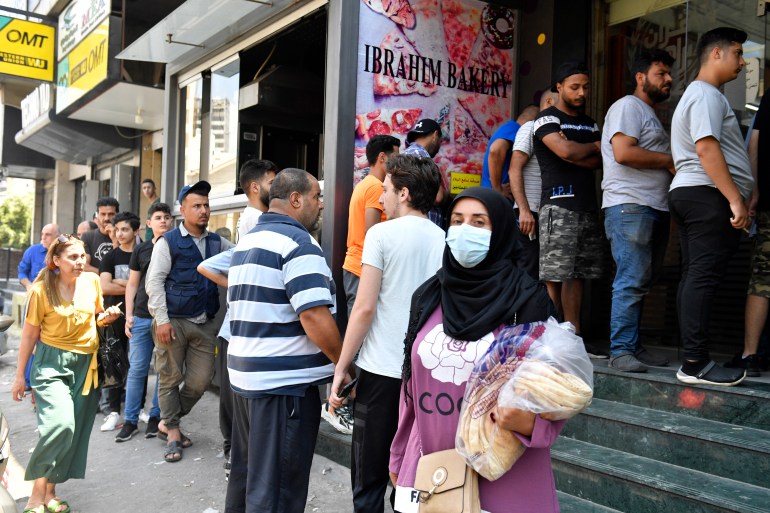Several Lebanese regions are witnessing a decline in the availability of bread in bakeries and at retailers, which has caused unprecedented crowding and long queues at the doors of the bakeries, according to footage circulated on digital platforms. Citizens blamed flour merchants for this emerging crisis and the lack of oversight by the relevant authorities.
And a number of bakery owners worked part-time due to the lack of flour.
This crisis ignited controversies between those concerned, as the caretaker Economy Minister, Amin Salam, denied in his statements the existence of a bread crisis, and stressed that flour stocks are available, accusing bakery owners and traders of monopolizing the subsidized flour designated for the production of Arab bread, for use in the production of sweets and types of bread. Unsupported for financial gain.
A number of the owners of the bakeries started to work partially due to the lack of flour (European)
In turn, the Syndicate of Bakeries Owners in Lebanon confirmed that the quantities of flour present are sufficient for the country for a month.
The World Food Program says food prices have jumped 11 times since the start of the crisis.
The authorities have gradually increased the official price ceiling for a loaf of bread, in light of the growing fear of wheat shortage since Russia's war on Ukraine, as Lebanon imports nearly 60% of its wheat needs from Ukraine, which has disrupted grain shipments.
Last April, the Director of the Middle East Department at the World Bank, Saroj Kumar Jah, described the crisis that Lebanon is going through as the worst in its history, and that it is among the 3 worst crises in the world.
The economic crisis that Lebanon is going through is among the 3 worst crises in the world (European)
Salam had said - in statements to Reuters last February - that Lebanon is seeking to conclude import agreements from different countries, amid market fears due to the Ukrainian crisis, noting that the authorities are in talks with other countries to import wheat, including the United States, India and France. and some European countries.
It is noteworthy that the main wheat silos in Lebanon were destroyed in the Beirut port explosion in 2020, and since then the country does not have enough capacity to store more than one month's supplies.

